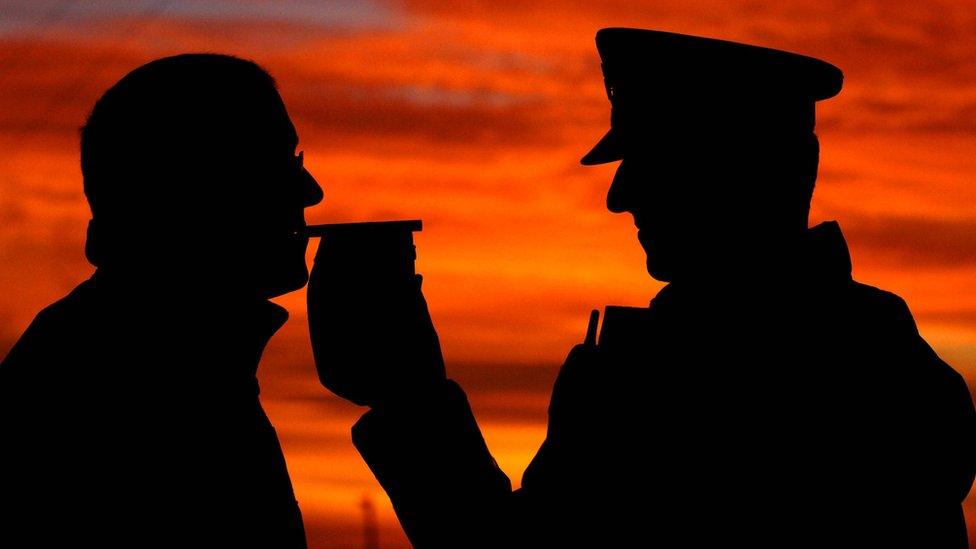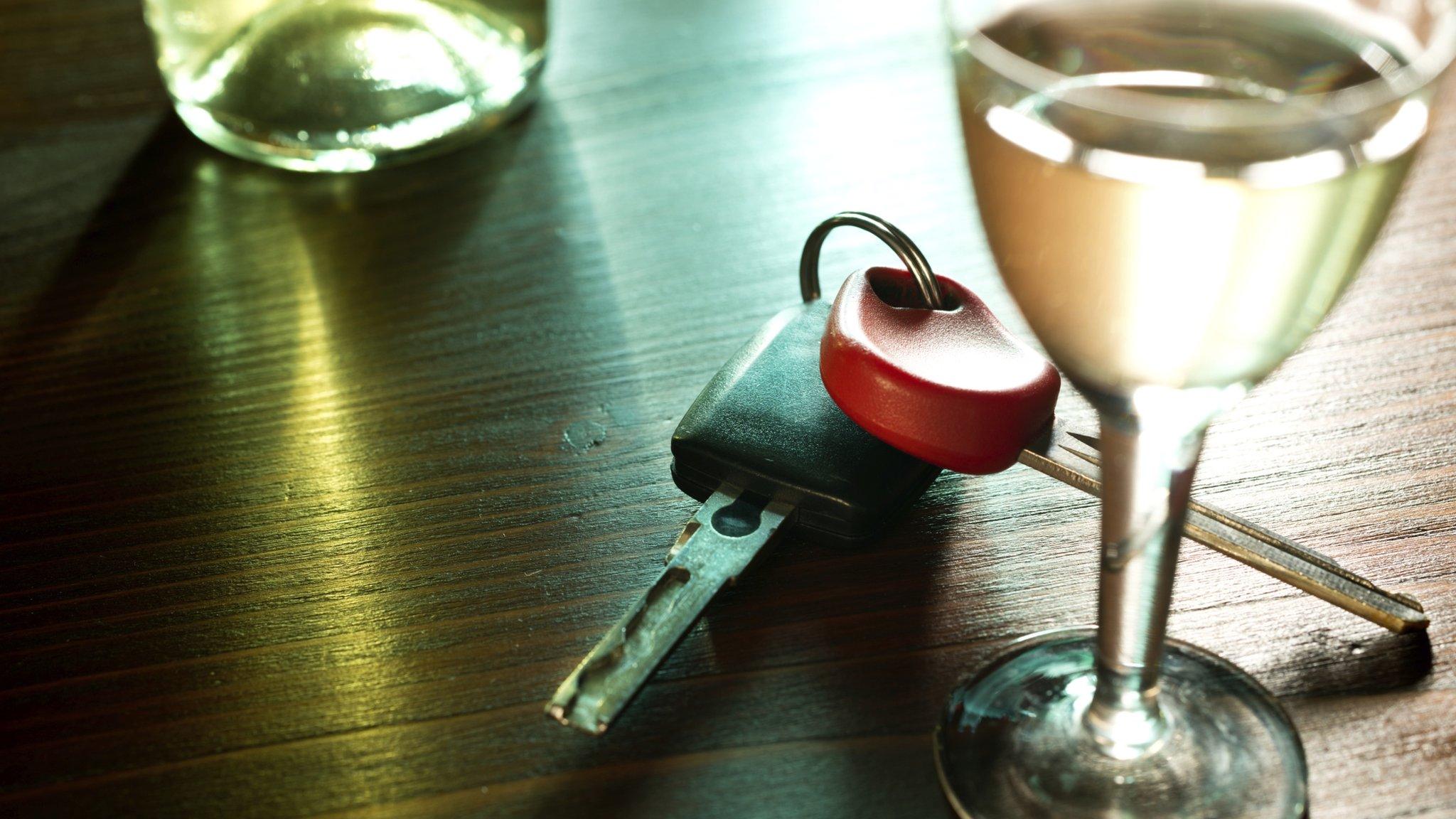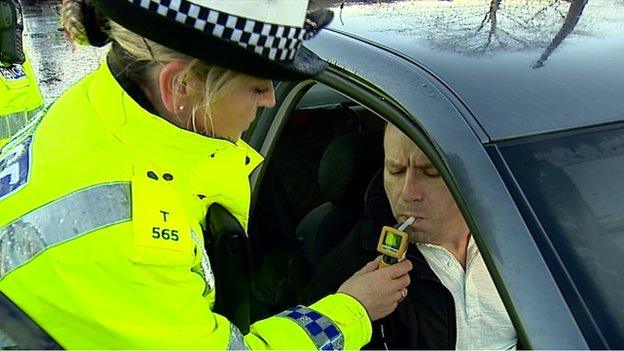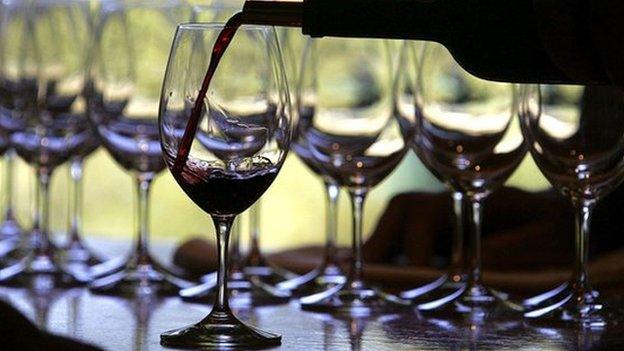'No plan' for England and Wales drink-drive limit change
- Published

There are no plans to lower the drink-drive limit in England and Wales to bring it in line with Scotland, the Department for Transport has said.
Transport minister Andrew Jones told MPs he was to assess whether Scotland's move had had an impact on road safety.
But the DfT later confirmed it was not undertaking a review to also move the legal level down from 80mg to 50mg of alcohol per 100ml of blood.
Road safety campaigners urged ministers to learn from Scotland's experience.
Mr Jones said: "The government believes rigorous enforcement and serious penalties for drink-drivers are a more effective deterrent than changing the drink-driving limit.
"Britain continues to have some of the safest roads in the world because we crack down on those who break the law."
'Hardcore offenders'
Speculation about a potential law change emerged on Tuesday when, in response to a written parliamentary question, Mr Jones said: "It is important to base our decisions on evidence and the Scottish experience will be crucial to that before we consider any possible changes to the limits in England and Wales."
The current 80mg limit in England, Wales and Northern Ireland - equivalent to 35 micrograms of alcohol per 100 millilitres of breath - is higher than most other European countries.
Northern Ireland is consulting on whether to lower its limit to 50mg for most motorists, with an effective zero limit for learner, novice and professional drivers.
Steve Gooding, director of the RAC Foundation, said: "It would be a poor argument to say cut the drink-drive limit just because others have done it, but there is now plenty of data to suggest a change would have a marked improvement in road safety terms."
Edmund King, the president of the AA, said: "It seems a sensible step to bring us into line with Scotland and the majority of European countries.
"However, it would probably be more effective for the police to target hardcore offenders who are way over the current limit as they are involved in the most deaths and injuries on the road."
'Morning after risk'
Mr King added with a lower limit drivers "also have to be aware of being over the limit the morning after".
The road safety charity Brake urged ministers to learn from the "successful reduction of the drink drive limit in Scotland", which happened in December 2014, and review laws.
Because everyone has a different susceptibility to alcohol, health experts say it is difficult to quantify exactly how many units can be drunk by drivers.
For the average man, a 50mg limit would mean they could consume just under a pint of beer or a large glass of wine and for women, half a pint of beer or a small glass of wine.
A spokesman for the British Beer and Pub Association said it believed the current limit in England and Wales was "well understood" by the public.
"We have some of the safest roads in Europe and key to that is education, awareness and tough enforcement," he added.
- Published29 January 2016

- Published29 May 2015

- Published19 May 2015
